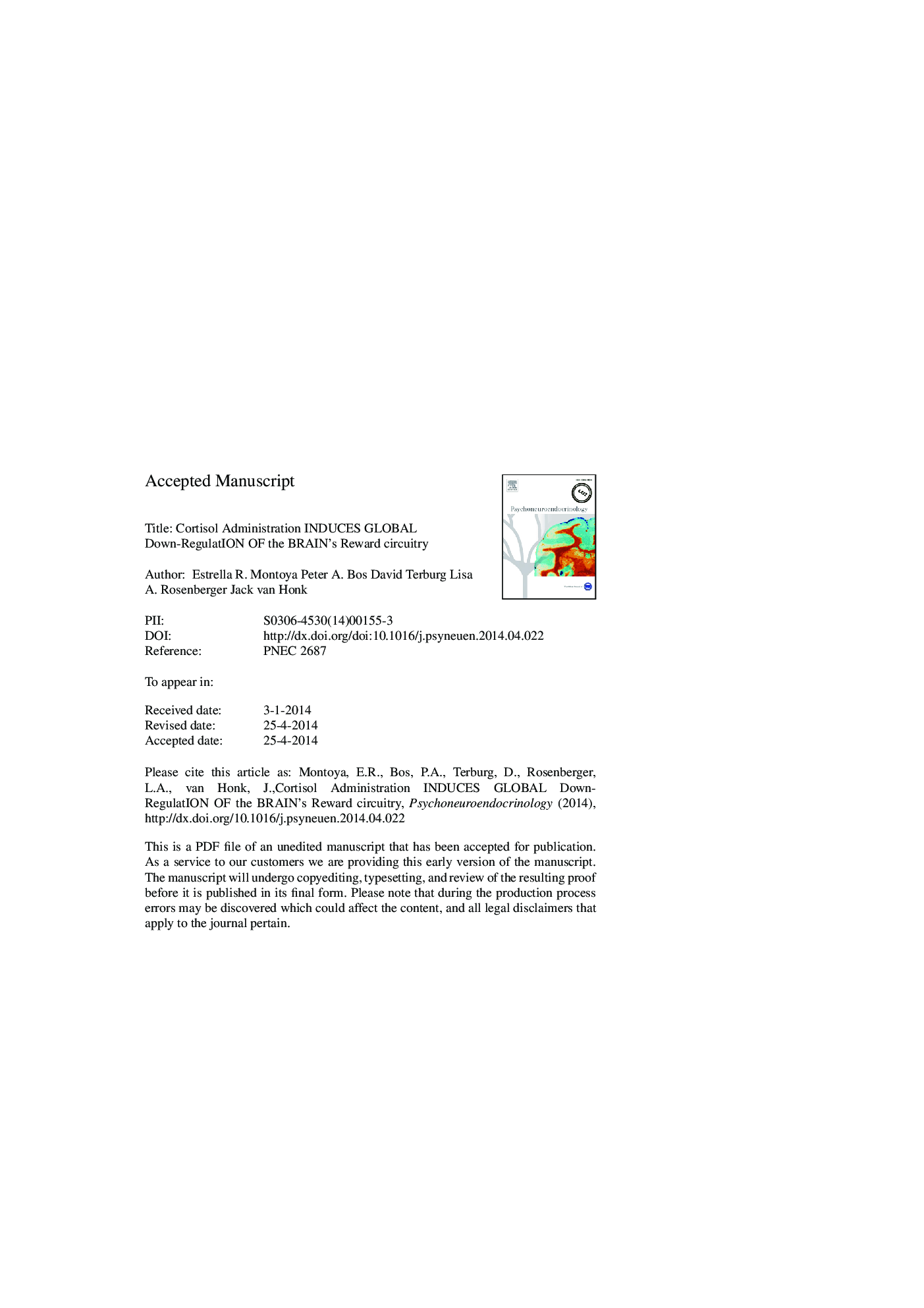| کد مقاله | کد نشریه | سال انتشار | مقاله انگلیسی | نسخه تمام متن |
|---|---|---|---|---|
| 6819632 | 547494 | 2014 | 40 صفحه PDF | دانلود رایگان |
عنوان انگلیسی مقاله ISI
Cortisol administration induces global down-regulation of the brain's reward circuitry
ترجمه فارسی عنوان
تجویز کورتیزول موجب کاهش جهانی تنظیم مدار پاداش مغز می شود
دانلود مقاله + سفارش ترجمه
دانلود مقاله ISI انگلیسی
رایگان برای ایرانیان
کلمات کلیدی
موضوعات مرتبط
علوم زیستی و بیوفناوری
بیوشیمی، ژنتیک و زیست شناسی مولکولی
علوم غدد
چکیده انگلیسی
Research in rodents and humans has shown divergent effects of the glucocorticoids corticosterone and cortisol (CRT) on reward processing. In rodents, administration of CRT increases reward drive by facilitating dopamine release in the ventral striatum. In humans, correspondingly, risky decision-making increases when CRT levels are elevated. Human stress studies contrariwise show that elevated CRT is accompanied by a decrease in reward-related brain activity. There are however no direct insights into how CRT acts on the reward system in the human brain. Accordingly, we used pharmacological functional magnetic resonance imaging (pharmaco-fMRI) to investigate the effects of CRT on the brain's reward system. In a randomized within-subject design we administered a high dose of CRT (40Â mg) and placebo to twenty healthy male volunteers on separate days, and used a monetary incentive delay task to assess the effects of the hormone on the striatum and the amygdala in anticipation of potential reward. In contrast to animal studies, we show that this high dose of CRT strongly decreases activity of the striatum in both reward and non-reward conditions. Furthermore, we observed reductions in activity in the basolateral amygdala, a key regulator of the brain's reward system. Crucially, the overall down-regulation of the brain's reward circuit was verified on the subjective level as subjects reported significantly reduced reward preference after CRT. In sum, we provide here direct evidence in humans that CRT acts on brain regions involved in reward-related behavior, that is, the basolateral amygdala and the striatum. Our findings suggest that CRT in the quantity and time course presently used globally down-regulates the reward system, and thereby decreases motivational processing in general.
ناشر
Database: Elsevier - ScienceDirect (ساینس دایرکت)
Journal: Psychoneuroendocrinology - Volume 47, September 2014, Pages 31-42
Journal: Psychoneuroendocrinology - Volume 47, September 2014, Pages 31-42
نویسندگان
Estrella R. Montoya, Peter A. Bos, David Terburg, Lisa A. Rosenberger, Jack van Honk,
